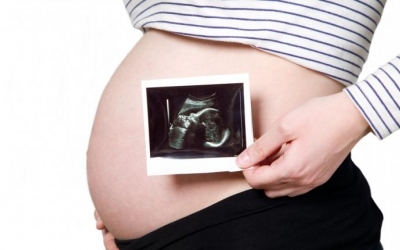- Latest news▼
-
16:38, May 6 Daily Mail: decaf coffee is high in fibre

-
15:26, May 6 Ministry of Health of Armenia: Laboratory-confirmed measles cases increased by 27 compared to the previous week

-
14:41, May 6 MedicalXpress: Diabetes drug lowers COVID-19 viral load 4-fold, study finds

-
08:27, May 6 Researchers determine how physical activity affects women's health in middle age

-
18:15, May 4 What role does diet plays in the treatment of bipolar disorder?

-
10:52, May 4 Scientists identified dangerous health effects for families with gas cookers in their homes

-
12:36, May 3 Smoking during pregnancy may lead to obese children, study finds

-
10:29, May 3 Scientists discover cell responsible for repairing damaged liver tissue

-
20:17, May 2 NBR: low to moderate intensity exercise protects against depression

-
18:28, May 2 Sixth Armenian International Ophthalmological Conference will be held on 17-19 May

-
16:11, May 2 ВJN: High-fat foods may increase the risk of heart attack and stroke at a young age

-
14:16, May 2 Patterns: Neural network created that models outcome of various patient therapy methods

-
12:05, May 2 Armenia joins Council of Europe convention on protection of patients' rights

-
14:27, May 1 Journal of Neuroscience: Sluggishness of the elderly is due to greater use of calories, research finds

-
10:26, May 1 AstraZeneca admits its Covid vaccine can cause thrombosis

All materials
Premature birth, poor development may be detected with a urine test

Imagine being able to tell whether your baby will be premature or suffer poor growth during the early stages of pregnancy by providing just a urine sample. Researchers from Imperial College London collaborated with some from the University of Crete and published their findings of an important molecule in the journal of BMC Medicine.
“Our findings imply that it could be possible to improve the identification of women at higher risk of delivering smaller babies or premature delivery using non-invasive metabolic profiling technology early in pregnancy," said the study's co-author Hector Keun, from the Department of Surgery and Cancer at Imperial College London, in a press release.
Researchers analyzed the urine samples of 438 pregnant women and focused on their metabolites, the small molecules in urine to see what it could tell them. They used the urine sample data that was collected at the first ultrasound appointment, Medical Daily reported.
"While we know that metabolism in the mother changes substantially during pregnancy to help supply the growing fetus with nutrients, we were surprised to see so early in pregnancy a link between metabolites that we could easily detect in a urine sample and low birthweight,” Keun said.
Women who had elevated levels of the amino acid lysine were found to have a higher risk of spontaneous premature birth. In addition, the researchers found that increased levels of N-acetylated glycoprotein also induced an early labor. Meanwhile, when a pregnant woman’s acetate, formate tyrosine, and trimethylamine were lower than normal, their babies had poor fetal development.
Premature birth and fetal growth problems increase the risk of developing metabolic and cardiovascular disorders later in the baby’s life. According to the Centers for Disease Control and Prevention, every year, 500,000 babies are delivered preterm, which is one for every eight infants. Preterm-related deaths accounted for 35 percent of all infant deaths in 2009, which is more than any one cause of death.
The urinary levels need to be further investigated in order for doctors to start using urine samples as a preliminary caution procedure.
Follow NEWS.am Medicine on Facebook and Twitter
- Read also
- Event calendar
- Archive
- Most read
month
week
day
- AstraZeneca admits its Covid vaccine can cause thrombosis 1492
- Scientists calculated how much time per day you should be sitting, standing and sleeping 1391
- The Conversation: Keeping bread in the fridge improves its health benefits 1390
- Sixth Armenian International Ophthalmological Conference will be held on 17-19 May 1359
- The Guardian: First personalized cancer vaccine developed 1260
- Journal of Neuroscience: Sluggishness of the elderly is due to greater use of calories, research finds 1252
- ВJN: High-fat foods may increase the risk of heart attack and stroke at a young age 1165
- NBR: low to moderate intensity exercise protects against depression 1152
- Armenia joins Council of Europe convention on protection of patients' rights 1140
- Patterns: Neural network created that models outcome of various patient therapy methods 1087
- Frontiers in Molecular Biosciences: Researchers use AI to identify 191 new destructive viruses 1080
- Smoking during pregnancy may lead to obese children, study finds 969
- Scientists discover cell responsible for repairing damaged liver tissue 946
- Scientists identified dangerous health effects for families with gas cookers in their homes 793
- What role does diet plays in the treatment of bipolar disorder? 745
- Find us on Facebook
- Poll









